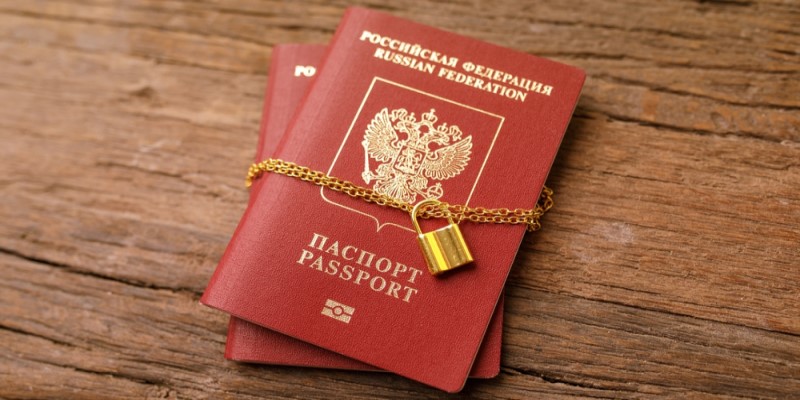
By Marta Lillo
Russian nationals seeking to immigrate to the United States and the European Union face significant challenges and restrictions in their visa applications following the Russian invasion of Ukraine.
Investors face heightened scrutiny overall, temporary suspensions and limitations on golden visa programs in Europe, and stricter EB-5 applications in the US. This creates a complex and stringent process for high-net-worth (HNW) Russian citizens hoping to relocate to safer destinations.
Most of these HNWIs moved to neighboring countries and Russian-friendly territories in a “temporary” capacity once the war began, says Natalia Polukhtin, an immigration attorney and principal at Global Practice law firm. However, they started looking West for permanent alternatives as the conflict continued.
“Once they initially settled in the UAE, Kazakhstan, Georgia, Armenia, and Turkey, many HNW families refocused their efforts to more permanent immigration strategies,” she says. “The trend of using ‘temporary relocation’ as a transition to settling down permanently elsewhere is not a new one for Russian citizens. It has long been the strategy in the E-2 visa context since Russia is not part of a bilateral treaty that would afford foreign investors a right to conduct business in the US on a temporary visa.”
European visa limitations for Russian nationals
However, relocating to Europe has become increasingly difficult as many countries have implemented temporary visa suspensions and restricted immigration rules for Russian citizens.
The suspension affects short-stay (tourism and business trips) and long-term (work, study, family reunification).
Latvia is the latest to ban Russian citizens from entry until March 2024, with exemptions. In July, Lithuania increased stricter border screenings and procedures, including a thorough review of travel documents and visas for foreign nationals from Belarus and Russia.
As of April, Poland was no longer allowing entry for specific categories of Russian citizens along the external European Union border, except for those with a Polish Residence Permit or a “Polish Business Harbor” visa. And in January, Turkey discontinued its preferential treatment for Russian nationals applying for tourist residence permits, increasing rates for these permits.
Meanwhile, in August, Italy ceased its investor visa program for Russian and Belarusian citizens, in alignment with the 2022 EU recommendations urging members urging states to discontinue the “golden passport” and similar citizenship or residence by investment programs for Russian and Belarusian nationals. The announcement is available on the program’s website.
Canada is not imposing bans or restrictions on Russian citizens applying for temporary or residency visas. Nevertheless, the country is enforcing sanctions against specific individuals associated with or offering significant support to the Russian government. Applicants of Russian, Ukrainian, and Belarussian nationality deemed inadmissible to Canada face refusal or revocation of their temporary resident visa applications by immigration officials and denial of entry into Canada at ports of entry, leading to their removal from the country. The authorities constantly update the list of sanctioned individuals, which is available on its official website.
Also, the Czech Republic, Greece, Ireland, Latvia, Malta, Portugal, Spain, and the United Kingdom suspended their golden visas for Russian investors, further narrowing options HNWIs.
In late 2022, Switzerland and Norway suspended their respective visa facilitation agreement with Russia, leading to higher short-term visa fees and extending processing times. Also, consulates in Moscow that have stopped issuing visas for either duration include the Netherlands and Romania.
In 2022, the European Union had already suspended its short-visa agreement with Russia, affecting all Russian citizens’ travel to the Schengen area.
Additionally, the change in the political climate reduced access to citizenship-by-investment program routes to the US and Europe through Turkey and Grenada, prompting Russian citizens to apply directly in European embassies and consulates.
EB-5 visa and other visa application obstacles for Russians
While the US has yet to announce any visa suspensions specifically for Russian nationals, applicants still face complications.
First, the US government designated its consulate in Warsaw, Poland to take on the extra load of visa applications after reducing consular services in Moscow. However, there are reports of differential treatment, with Russian nationals allegedly facing heightened scrutiny, Charles Raether, EB-5 immigration lawyer and the founder and managing partner of AmLaw Group, explains.
“From the State Department, at the visa level, we are recommending our clients not go to the Warsaw consulate. We are not experiencing negative experiences for Russian applicants at consulates besides Warsaw,” he says.
Many applications filed before the war have been getting approvals, the EB-5 lawyer explains. However, the problem these Russian applicants face is getting to the consulates or embassies that have issued the visas.
“Since most of the petitions that are now at the adjudication stage were filed while the consulates in Russia were operational, investors noted that they would obtain their immigrant visas in Moscow once the petition is approved,” Polukhtin adds. “The problem is that in September 2022, the four European Union countries that border Russia – Estonia, Latvia, Lithuania, and Poland –officially stopped issuing Schengen visas to citizens of Russia and banned them from entering their territories.”
Russian applicants that filed directly before the US Citizenship and Immigration Services (USCIS) on US soil also face complications.
According to Raether, the assessment has specifically become more rigorous for the EB-5 visa program.
“With EB-5 petitions we definitely see heightened scrutiny in their adjudication over the past year. Any cases now being adjudicated were filed before the war in Ukraine and the new sanctions. (USCIS) is raising issues with Russian applicants that we believe are overly invasive and expansive because so many of our clients are from Russia or from that part of the world. Generally, if you are Western European or Canadian, they are generally less demanding as Source of Funds (SOF) evidence as compared to Eastern Europeans and Russians in particular.”
The EB-5 lawyer notes that this level of scrutiny was less intense two years ago.
“They seem to be taking the approach of ‘guilty unless proven innocent.’ They are challenging every little thing in their applications, making it more burdensome to provide the required evidence. It wasn’t like this two years ago. And as legal counsel, we are doing our best to respond.”
Embassy EB-5 applications are going through with little problem outside of Warsaw, Raether adds. “But, at the USCIS level, they are still challenging EB-5 applications and getting very invasive (…) At the embassy level, the most significant problems we’ve seen for Russian applicants recently are not EB-5 visa applications, but rather other categories. We have seen a marked uptick of visa denials at post for Russians who have an approved petition from USCIS—say, for an O-1, EB-1a, or even E-2.”
USCIS improving the management of Russian EB-5 applications
Raether observes that the USCIS is making efforts to improve its expertise in dealing with Russian visa applications.
“We have also noticed that they have Russian-speaking adjudicators at USCIS now. We are noticing more often that they are referring to documents in Russian. We see more people who understand Russian accounting principles and tax documents. They are obviously hiring more experienced people that understand the banking and accounting systems.”
Proving a source of funds and transferring money for EB-5 investment has become a challenging step in the application process due to Russia’s political isolation and the suspicions surrounding Russia-originated capital.
Constraints include obtaining the necessary documentation for the source of funds from Russian institutions and challenges trying to do fund transfers to denials over noncompliance that was not an issue in the past, Polukhtin says.
“Even with perfectly legal capital, issues still arise even when transferring money out of Russia. Virtually all Russian-based banks are currently cut-off the SWIFT system making a direct wire to the US impossible. Currency exchange is legal, but practically impossible to accomplish within the Russian banking system,” she explains.
According to Polukhtin, the situation has compelled Russian EB-5 investors to find solutions in complex methods.
“Investors who still have their assets in Russian currency are forced to make a wire to the bank in one of the neighboring countries (Armenia and Kazakhstan are usually a popular choice) to convert their funds into USD at a very unfavorable exchange rate and only then transfer them to the escrow of the investment enterprise. Some investors resort to third-party intermediaries for the “money swops,” well-adopted by the Asian EB-5 market, but still a novelty for Russian investors.”
However, the USCIS is contesting these routes at times when the agency is improving its surveillance of third-party intermediaries.
“It is also not uncommon for Russian individuals now to rely on cryptocurrency exchangers hoping that the perceived anonymity of these transfers will not prevent them from passing the scrutiny for the source of funds,” she states.
DISCLAIMER: The views expressed in this article are solely the views of the author and do not necessarily represent the views of the publisher, its employees. or its affiliates. The information found on this website is intended to be general information; it is not legal or financial advice. Specific legal or financial advice can only be given by a licensed professional with full knowledge of all the facts and circumstances of your particular situation. You should seek consultation with legal, immigration, and financial experts prior to participating in the EB-5 program Posting a question on this website does not create an attorney-client relationship. All questions you post will be available to the public; do not include confidential information in your question.








